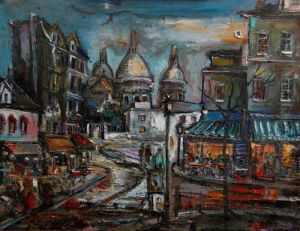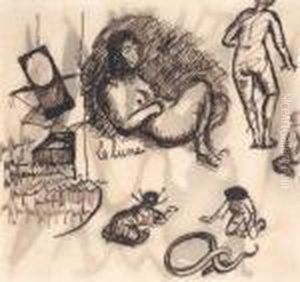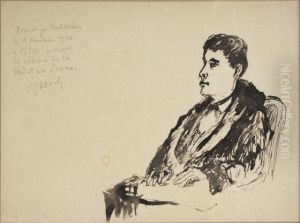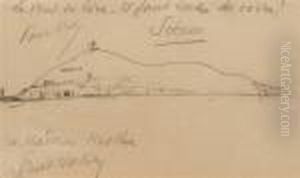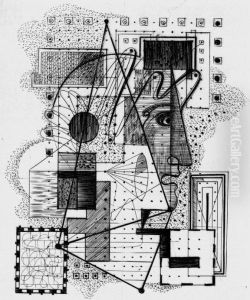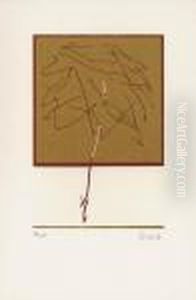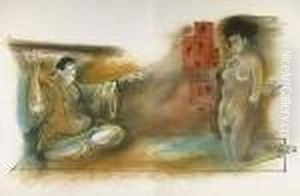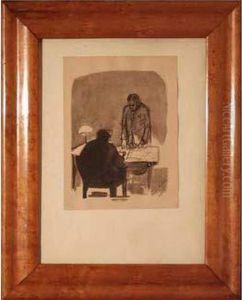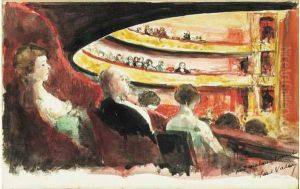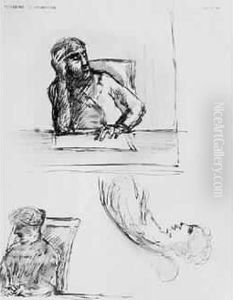Paul Valery Paintings
Paul Valéry was a French poet, essayist, and philosopher, whose interests also included the arts. Born Ambroise-Paul-Toussaint-Jules Valéry on October 30, 1871, in Sète, France, he grew up in a Mediterranean town where he developed a lasting fascination with the sea, a theme that appears in much of his poetry. Valéry was educated at the University of Montpellier, where he initially studied law but was drawn to literature and philosophy.
Valéry's literary career began with some early successes in poetry, but a personal crisis in 1892, which he later referred to as the 'Night of Genoa,' led him to question the value of poetry and caused him to cease publishing his work for nearly 20 years. During this time, he worked in the French civil service and focused intensely on intellectual and philosophical studies. This period of self-imposed silence was a time of deep reflection and maturation for Valéry, during which he developed his ideas on the function of the mind and the role of consciousness, which would later be central to his work.
Despite his initial reluctance, Valéry returned to publishing poetry in 1917 with the release of 'La Jeune Parque' (The Young Fate), which is often considered one of his masterpiece works. This marked the beginning of his most productive period. In 1920, he published 'Album de vers anciens' and 'Charmes,' the latter of which included his most famous poem, 'Le Cimetière marin' (The Graveyard by the Sea).
Valéry became a celebrated figure in French literature and was elected to the Académie Française in 1925. He continued to write extensively, not only poetry but also numerous essays and aphorisms on art, history, literature, and philosophy. His wide-ranging intellect and the high esteem in which he was held made him a prominent public intellectual and a respected voice in European culture.
During the 1930s, Valéry's fame crossed national boundaries, and he became an international figure. His work was characterized by rigorous intellectual discipline and a highly polished formal style. He was also known for his precise use of language and his ability to capture complex philosophical thoughts within the constraints of poetic form.
Valéry's influence extended beyond literature; he was involved in the cultural and intellectual debates of his time, engaging with contemporary movements and ideas. He was deeply concerned with the role of the intellect and the artist in society, and his work often reflects his thoughts on these subjects.
Paul Valéry died on July 20, 1945, in Paris. His writings remain influential in the fields of literature, philosophy, and aesthetics, and he is considered one of the leading French poets of the early 20th century. Valéry's legacy is that of a thinker who sought to reconcile the pursuits of the mind with the expression of the spirit, a theme that resonates through his diverse and extensive body of work.
